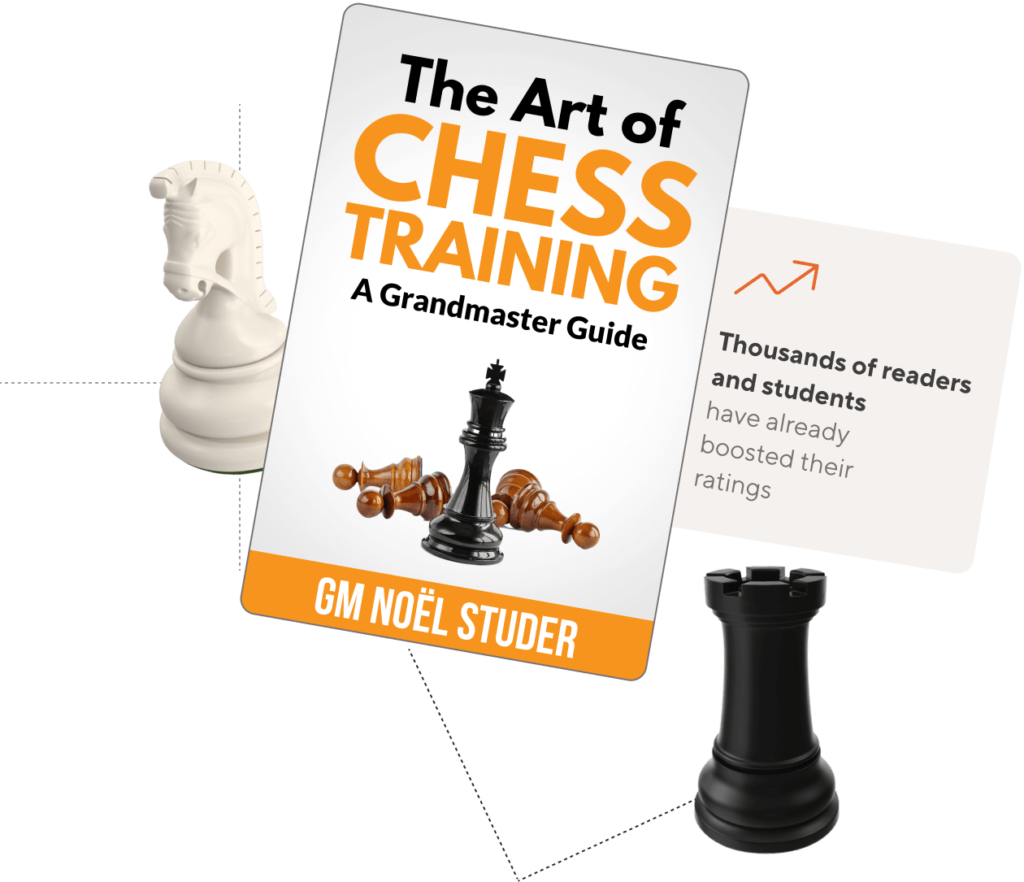A simple & proven Way to Train Chess for Real Improvements
An E- book from Grandmaster Noël Studer, author of Next Level Chess

Download my E-book
and start improving your Chess Now
Packed with Grandmaster insights, The Art of Chess Training: A Grandmaster Guide will teach you how to study Chess to break through barriers and unleash your full potential.
Hi,
I’m Grandmaster Noël Studer, author of
Next Level Chess
As a former professional chess player who transitioned into coaching and blogging, I made history by becoming the youngest Swiss Grandmaster at just 20 years of age and have since accumulated numerous Swiss Championship titles to my name.
My passion lies in providing
clear, concise, and effective chess improvement advice,
which has already helped thousands of readers and students boost their ratings and derive greater enjoyment from the game. With a focus on simplicity, my writing and coaching methods are tailored to suit players of all skill levels.

I firmly believe that
anyone can improve their chess through the right mindset and training techniques.
I’m here to guide you on your journey to chess mastery.
Latest Articles
- GM Noël Studer
- 5 min
- GM Noël Studer
- 4 min
- GM Noël Studer
- 3 min
- GM Noël Studer
- 4 min
- GM Noël Studer
- 4 min
- GM Noël Studer
- 4 min
Stay Up to Date
by signing up to my e-mail newsletter
Enter your email address below to sign up for receiving all my new insights, articles, books & courses
– a very short mail, without fluff or Spam
Thousands of readers and students
have already boosted their ratings and derive greater enjoyment from the game
Each week
you will receive an update on all my new articles, books & courses A very short mail, without fluff or Spam Just a little reminder to keep improving your chess.